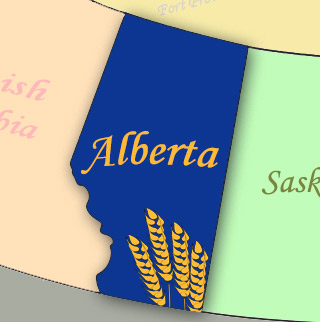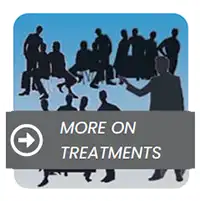Private Drug & Alcohol Rehab in Alberta
Finding the Right Private Treatment in Alberta
Finding the right private drug or alcohol rehab in Alberta can be challenging. There are many different treatment options: detox, inpatient, outpatient, or addiction counselling. What is the best choice? And where does one start?
This page will attempt to give you information to make your search easier and choose the right facility. You can also call us if you need help; our referral counsellors are on the line, and they work across Canada.
You may want a public access drug rehab centre. Below, you will find a list of recommended services in Alberta. Afterward, there will be information and tips on this option.
Public Access Drug and Alcohol Rehab in Alberta
Alcove Addiction Recovery for Women
1937 42 Ave SW
Calgary, T2T 2M6
(403) 984-2707
MORE INFORMATION
Calgary Dream Center
Addiction and Recovery Programs
4510 Macleod Trail South
Calgary, T2G 0A4
(403) 243-5598
MORE INFORMATION
Southern Alcare Manor
Residential Treatment Center
520 7 St S,
Lethbridge, T1J 2H1
(403) 328-0955
MORE INFORMATION
Rising Above Ministry
Residential Treatment Program
11007 106 Street
Grande Prairie, T8V 2Z3
(780) 533-3025
MORE INFORMATION
Poundmaker’s Lodge
Treatment Centres
25108 Poundmaker Road
St. Albert,
T8T 2A2
(780) 458-1884
MORE INFORMATION
Fresh Start Recovery Centre Calgary
411 41 Ave NE
Calgary, T2E 2N4
Phone: 403-387-6266
Toll Free: 1-844-768-6266
Fresh Start Recovery Centre Lethbridge
85049 Range Rd 212
Lethbridge, T1J 5N9
Phone: 403-329-6603
Toll Free: 1-844-768-6266
Recovery Acres
1835 – 27th Avenue SW
Calgary, T2T 1H2
(403) 245-1196
MORE INFORMATION
Information and Tip
The wait time in Alberta rehab-funded centres can be long—sometimes months. A physician’s or an addiction counsellor’s referral and special conditions can speed up admission. Please talk with your healthcare practitioner about this possibility in your region.
Drug and Alcohol Rehab Alberta, Choosing a Private Facility
There are several things one should consider. The first one is the level of care the person needs or their degree of addiction. The second would be the relatability of the program, the individual and method used being on the same wavelength. The third and biggest hurdle is what to do when the person is in denial. Please read on as we’ll develop all these points.
You can visit our About Us page here for more information on us.
What Types of Rehab Centres are Available?
Know that when you call a centre, they will start with an assessment to know the person’s level of addiction. This action will help determine if they can give the person the level of care they need.
However, to narrow your search, the following information will guide you and reduce the number of calls you make.
Addiction Severity or Stages
The individual wants to try it out of curiosity or occasionally smokes a joint or does a line of coke; this stage is not worrisome. Another stage is when the individual consumes drugs or alcohol regularly, but it isn’t affecting their lives.
At a more pronounced stage, substance use starts causing problems in various areas of the individual’s life. A severe addiction is categorized by unsuccessful efforts to cut down or quit. The substance becomes a central focus in the individual’s life at this stage, and they start to neglect other important aspects of life.
There is a persistent desire to use the drug despite negative consequences.
Read more about the Levels of Addiction
MEDICAL DETOX
A medically supervised detox is a period in which the person stops ingesting addictive substances. It is the first step in recovery.
A medical detox is for those at risk of severe withdrawal symptoms or complications from a medical condition. A medical team monitors the individual’s health and provides medications and treatments. Medical detox lasts from five to seven days but sometimes longer. It is crucial for substances like benzodiazepines, barbiturates, and alcohol.

NON-MEDICAL DETOX
A non-medical detox avoids the use of medications. Non-medical detox is mainly for individuals with less severe withdrawal symptoms. Substances like cocaine, marijuana and morphine would not require a medical detox. And, unlike medical detox, it is not a hospital-like environment.
RESIDENTIAL DRUG and ALCOHOL REHAB
This type of treatment is where individuals live in a controlled environment, providing 24/7 support. The stay in residential programs varies, lasting three weeks to several months.
A person with a medium to severe addiction would greatly benefit from this type of program. For severe, longstanding addiction, a long-term program would be best.
OUTPATIENT TREATMENT
An outpatient program is for those with a light addiction problem who don’t require round-the-clock supervision. Sessions can occur weekly, biweekly, or monthly, depending on the individual’s needs. It allows participants to maintain their daily routines and is more affordable than inpatient care.
RECOVERY COACHING and ADDICTION COUNSELLING
Are other services available for those who have gone through a program and seek support? It is also for those who feel they are losing control over the substance and want to nip it in the bud before it progresses too much.
More on addiction services offered here.
Drug and Alcohol Rehab Alberta—Methods Used
As mentioned above, the relatability of the program is important. The individual undergoing treatment should find the approach applicable to them. The method should resonate with them.
Not all drug rehabs provide the same program method. Many facilities base their program on the 12-step approach. Some programs are faith-based, while others use CBT or other therapies.
You can visit this page for details to better understand the most common approaches to Alberta rehab centres.
Bringing Up the Subject of Rehab in Alberta
When the substance use of a person you love gets out of control, you normally bring up the subject. Maybe you have and found resistance. The person might refuse to talk about it and deny any loss of control. They might tell you not to worry, but you see their gradual decline, and they can’t. Families get into heated arguments on this subject.
Here are a few articles on techniques for talking to someone.
What Happens When You Call Our Line
When you call from Alberta, our referral counsellor answers the phone. They will start by asking questions about the person who needs help. It will give them some information on the level of care they require.
Following this, they will recommend the most appropriate service. This service may or may not be in Alberta, but rest assured, it will be the best option for the individual. Once you agree to a facility, they will facilitate contact.
At this stage, the centre will address any remaining queries. Once everything is in order and you are satisfied, their intake counsellor will coordinate the admission.
We then follow up to ensure you are happy with the choice and that everything fell into place. If not, we can look for another treatment centre and have them call you.

Marc Bernard
Author,
Addiction Field Specialist,
Referral & Consultation Counsellor, Ethics in Practice – NAADAC
Reviewed by Susan. Chubbs Drug and Alcohol Treatment Specialist



